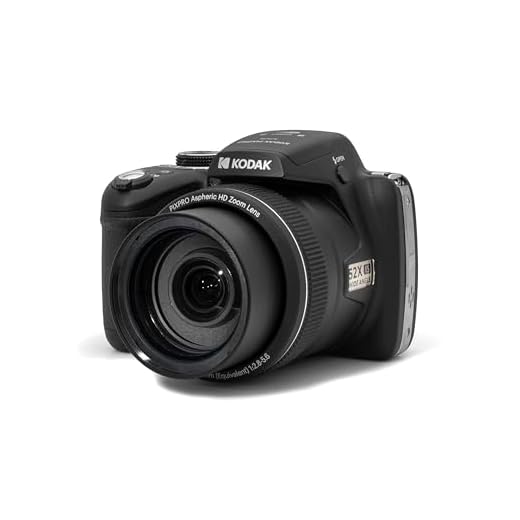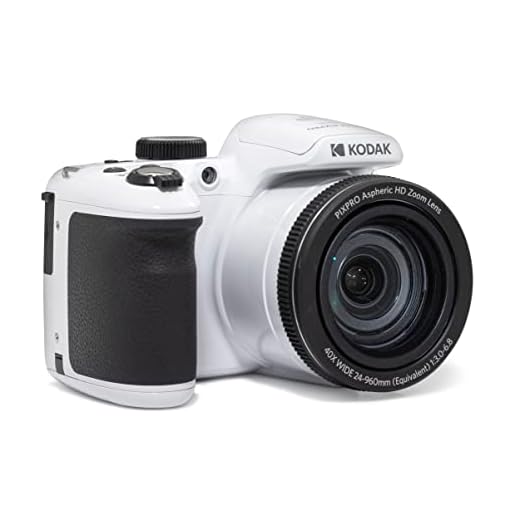




Choosing the right digital camera can be a daunting task with so many options available in the market today. Whether you are a beginner or a professional photographer, selecting the perfect camera that meets your needs and fits your budget is crucial. To make an informed decision, consider the following factors before making your purchase.
Resolution and Megapixels: One of the most important features to look for in a digital camera is its resolution and megapixels. Higher resolution and more megapixels mean better image quality and detail. If you plan to print large photos, opt for a camera with at least 12 megapixels or higher.
Zoom and Lens: Another crucial aspect to consider is the camera’s zoom and lens capabilities. Look for cameras with optical zoom rather than digital zoom for better image quality. A camera with a wide-angle lens is ideal for landscape photography, while a telephoto lens is great for capturing distant subjects.
Factors to Consider When Choosing a Digital Camera
When selecting a digital camera, there are several important factors to consider to ensure you get the right one for your needs:
1. Resolution: Higher resolution cameras offer better image quality, so consider the resolution you need based on your intended use.
2. Sensor size: A larger sensor size generally produces better image quality, especially in low light conditions.
3. Lens quality: The quality of the lens can significantly impact the sharpness and clarity of your photos.
4. Zoom capabilities: Consider the optical zoom range of the camera to determine how close you can get to your subject without losing image quality.
5. Size and weight: Choose a camera that is comfortable for you to hold and carry, especially if you plan to use it for extended periods.
6. Battery life: Check the battery life of the camera to ensure it meets your needs, especially if you will be shooting for long periods without access to charging.
7. Features and settings: Consider the specific features and settings that are important to you, such as manual controls, image stabilization, and connectivity options.
By considering these factors, you can choose a digital camera that meets your needs and helps you capture stunning photos.
Resolution and Image Quality
When choosing a digital camera, one of the most important factors to consider is the resolution and image quality it offers. Resolution refers to the number of pixels that make up an image, with higher resolution cameras producing sharper and more detailed photos. Look for a camera with a higher resolution if you plan to print your photos or display them on a large screen. Additionally, consider the image quality of the camera, which is determined by factors such as sensor size, lens quality, and image processing capabilities. A camera with good image quality will produce clear, vibrant, and true-to-life photos. Be sure to test the camera in different lighting conditions to evaluate its performance in various situations.
Zoom and Lens Options
When choosing a digital camera, consider the zoom and lens options available. Optical zoom is crucial for capturing distant subjects with clarity. Look for cameras with higher optical zoom numbers for better magnification capabilities. Additionally, pay attention to the quality of the lens. A high-quality lens can make a significant difference in the sharpness and clarity of your photos. Consider cameras with features like image stabilization to minimize blur caused by camera shake.
Factors to consider:
Optical Zoom: Higher optical zoom numbers indicate better magnification capabilities.
Lens Quality: Look for cameras with high-quality lenses for sharper images.
Image Stabilization: Consider cameras with image stabilization to reduce blur in your photos.
Camera Size and Weight
When choosing a digital camera, it’s important to consider the size and weight of the camera. The size and weight of a camera can greatly impact its portability and convenience. If you plan to carry your camera around with you frequently, you’ll want to choose a camera that is compact and lightweight.
Some cameras are small enough to fit in your pocket, while others may require a camera bag or case for transport. Consider how and where you plan to use your camera to determine the right size and weight for your needs.
Compact Cameras
Compact cameras are great for casual photographers who want a lightweight and portable option. These cameras are typically small enough to fit in a pocket or purse, making them easy to carry around for everyday use.
DSLR Cameras
DSLR cameras are larger and heavier than compact cameras, but they offer superior image quality and versatility. If you’re serious about photography and don’t mind the extra weight, a DSLR camera may be the right choice for you.
| Camera Type | Size | Weight |
|---|---|---|
| Compact Camera | Small | Lightweight |
| DSLR Camera | Large | Heavier |
Budget and Price Range
When choosing a digital camera, it’s important to consider your budget and price range. Digital cameras come in a wide range of prices, from budget-friendly options to high-end professional models. Before making a purchase, determine how much you are willing to spend on a camera.
Factors to Consider:
Factors that can affect the price of a digital camera include the brand, features, image quality, resolution, and additional accessories. It’s essential to prioritize what features are most important to you and find a camera that fits within your budget while meeting your needs.
| Price Range | Camera Types |
|---|---|
| Under $200 | Entry-level point-and-shoot cameras with basic features |
| $200 – $500 | Mid-range compact cameras with more advanced features and better image quality |
| Above $500 | High-end DSLR or mirrorless cameras with professional-grade features and superior image quality |
Camera Brand and Reputation
When choosing a digital camera, it is important to consider the brand and reputation of the manufacturer. Some well-known camera brands have a long history of producing high-quality products and have built a reputation for reliability and innovation. Brands like Canon, Nikon, Sony, and Fujifilm are known for their commitment to producing top-notch cameras with advanced features and excellent image quality.
It is advisable to research the reputation of the camera brand you are interested in before making a purchase. Reading reviews from professional photographers and other users can give you valuable insights into the performance and reliability of the camera. Additionally, looking at the brand’s track record of releasing software updates and providing customer support can help you make an informed decision.
Ultimately, choosing a camera from a reputable brand can give you peace of mind knowing that you are investing in a quality product that is likely to meet your photography needs for years to come.
Special Features and Functionality
When choosing a digital camera, it’s essential to consider the special features and functionality that will enhance your photography experience. Here are some key factors to keep in mind:
1. Megapixels
Higher megapixels mean better image quality and the ability to print larger photos without losing clarity. Consider your printing needs when selecting a camera with the right megapixel count.
2. Zoom Capability
Optical zoom is crucial for capturing distant subjects with clarity. Look for cameras with a higher optical zoom range to ensure you can capture detailed shots from a distance.
| Special Feature | Functionality |
|---|---|
| Image Stabilization | Reduces blur caused by camera shake, resulting in sharper images. |
| Wireless Connectivity | Allows for easy sharing of photos and remote control of the camera. |
| Manual Controls | Enables customization of settings like aperture, shutter speed, and ISO for creative control. |
By considering these special features and functionalities, you can select a digital camera that meets your specific photography needs and preferences.
Low Light Performance
When choosing a digital camera, one important factor to consider is its low light performance. This refers to how well the camera can capture images in low light conditions, such as indoors or at night. A camera with good low light performance will produce clear and sharp images with minimal noise even in challenging lighting situations.
Sensor Size
The size of the camera’s sensor plays a crucial role in its low light performance. Generally, larger sensors are better at capturing light and producing high-quality images in low light. Look for cameras with larger sensor sizes, such as APS-C or full-frame sensors, for improved low light performance.
Aperture
The aperture of the camera lens also affects its low light performance. A wider aperture (lower f-stop number) allows more light to enter the camera, resulting in better low light performance. When choosing a camera, consider lenses with wider maximum apertures for superior low light capabilities.
| Key Considerations for Low Light Performance: |
|---|
| 1. Sensor Size |
| 2. Aperture |
Connectivity Options
When choosing a digital camera, it’s important to consider the connectivity options it offers. The ability to easily transfer photos and videos from your camera to other devices can be a key feature for many users.
Wi-Fi and Bluetooth
Cameras with built-in Wi-Fi or Bluetooth capabilities allow you to quickly and wirelessly transfer photos to your smartphone, tablet, or computer. This makes sharing your images on social media or via email much easier.
USB and HDMI
Look for cameras with USB and HDMI ports for more traditional methods of transferring files. USB connections are useful for connecting your camera directly to your computer, while HDMI ports allow you to view your photos and videos on a larger screen.
- Consider the ease of use and compatibility of the connectivity options when making your decision.
- Choose a camera that offers the connectivity features that best suit your needs and workflow.
User-Friendly Interface and Controls
When choosing a digital camera, it is important to consider the user interface and controls. A camera with a user-friendly interface makes it easier for you to navigate through settings, modes, and menus. Look for cameras that have intuitive controls that are easy to understand and operate.
Consider the layout of buttons and dials on the camera body. Are they easily accessible and well-placed for quick adjustments? Some cameras offer touchscreen interfaces, which can be more intuitive for some users. Make sure to test out the interface and controls before making a decision to ensure it meets your needs and preferences.
FAQ
What are the key factors to consider when choosing a digital camera?
When choosing a digital camera, it is important to consider factors such as the resolution (megapixels), sensor size, lens quality, zoom capabilities, image stabilization, battery life, and the camera’s ease of use. These factors will determine the overall quality and versatility of the camera.
Is it better to choose a DSLR or a mirrorless camera?
Choosing between a DSLR and a mirrorless camera depends on your specific needs and preferences. DSLRs are known for their optical viewfinders and longer battery life, while mirrorless cameras are more compact and offer faster autofocus. Consider what features are most important to you before making a decision.
What are some recommended digital camera brands to consider?
Some popular digital camera brands to consider are Canon, Nikon, Sony, Panasonic, and Fujifilm. These brands are known for producing high-quality cameras with a range of features to suit different budgets and photography styles. It’s always a good idea to read reviews and compare models before making a purchase.









